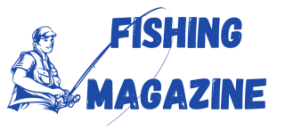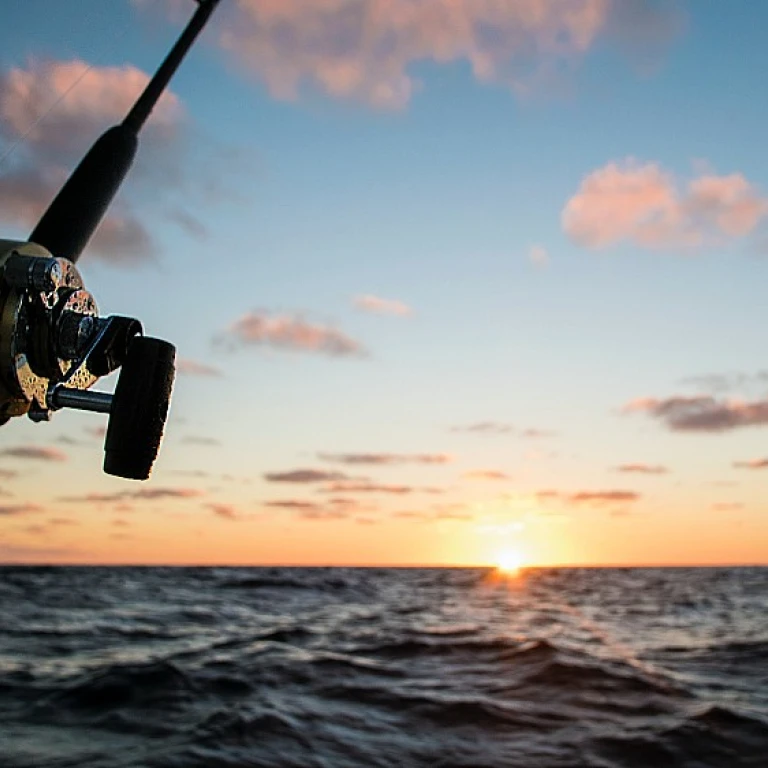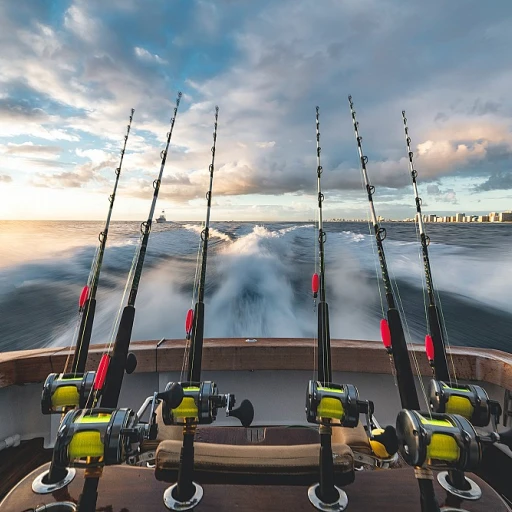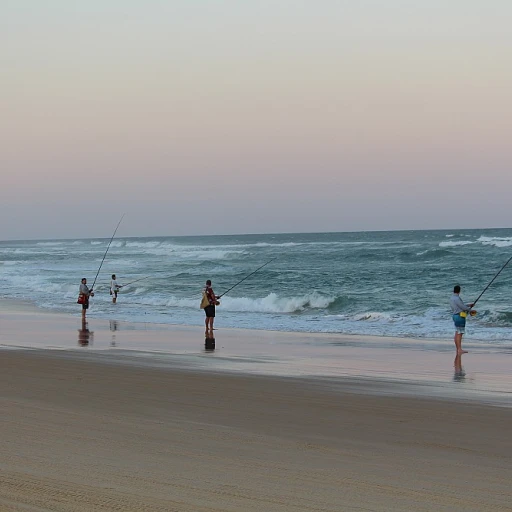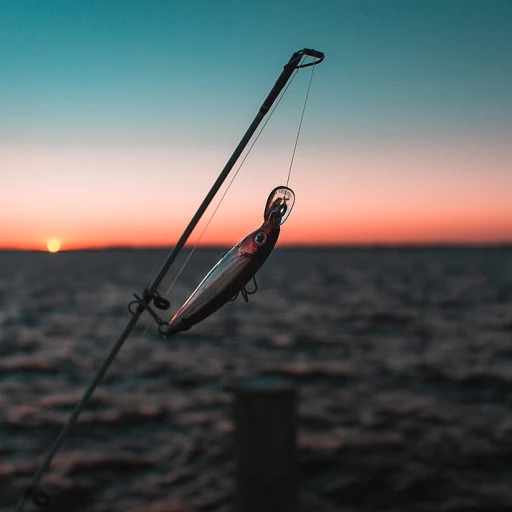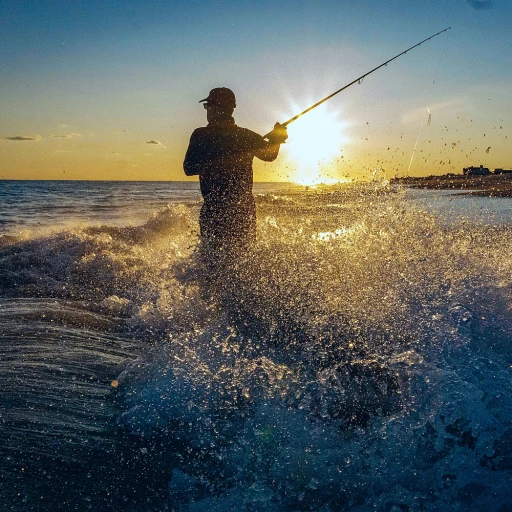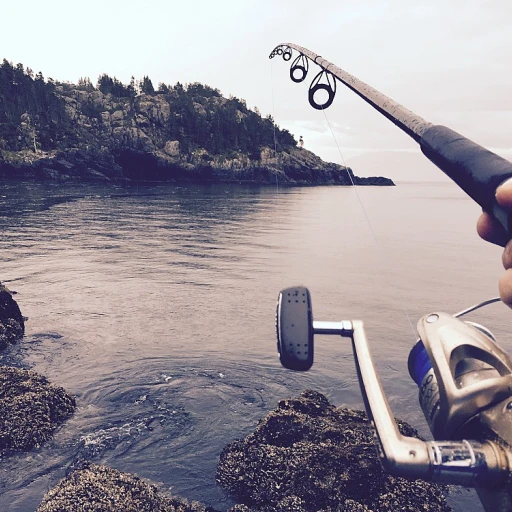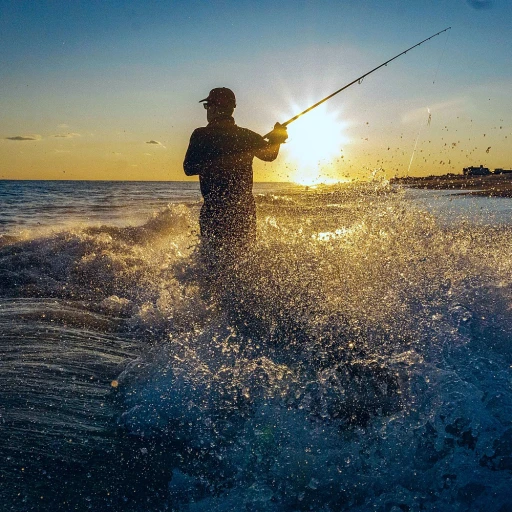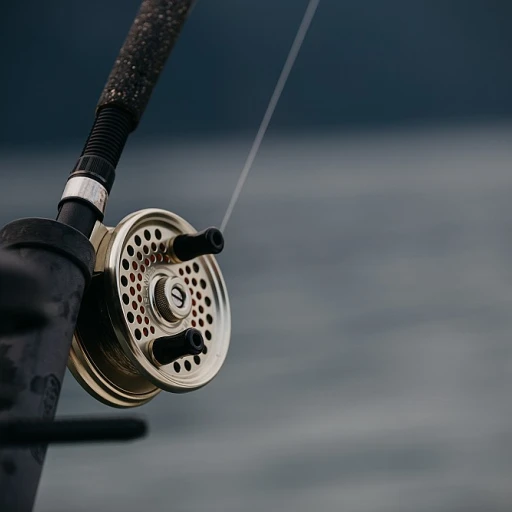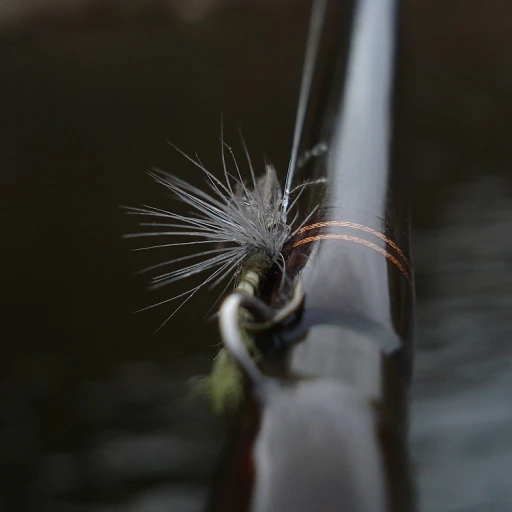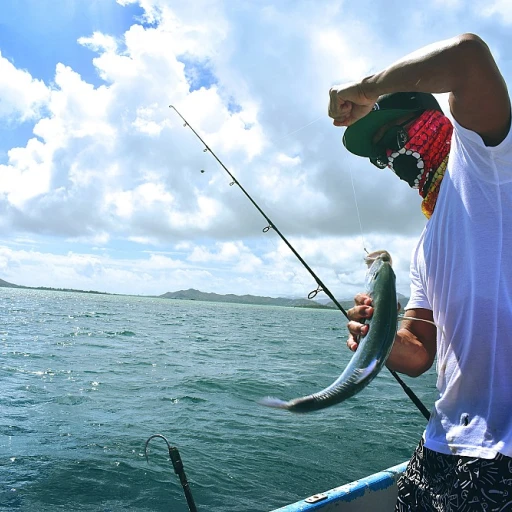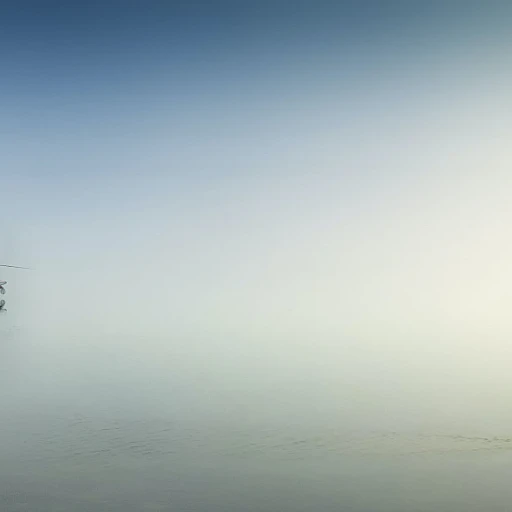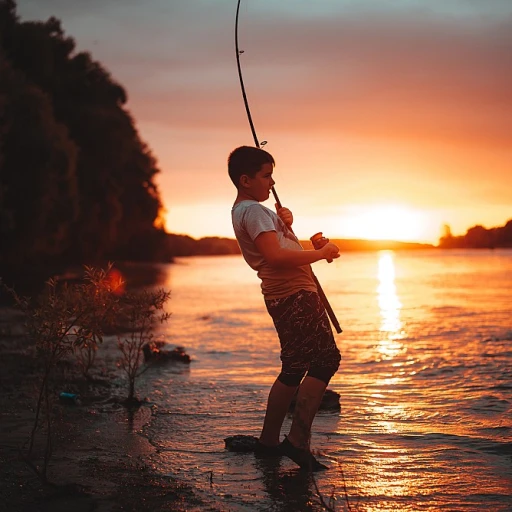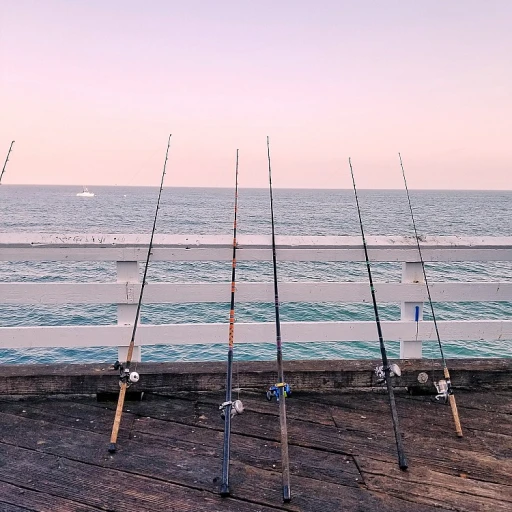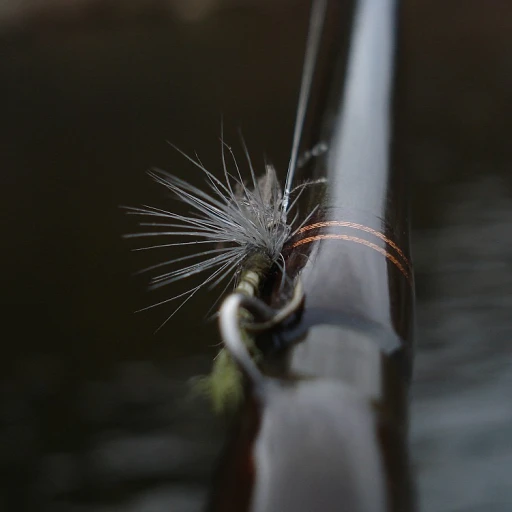
Understanding the Importance of a Fishing License
The Value of a Fishing License
Obtaining a fishing license is not just a regulatory requirement; it's an essential step to support the conservation efforts in Maine's rich marine waters. By purchasing a fishing license, fishermen contribute to the preservation and management of the state’s inland fisheries and wildlife. It plays a critical role in ensuring sustainable fishing practices are maintained for both residents and non-residents who enjoy fishing in these beautiful waters. Engaging in fishing activities without a license could lead to penalties and potentially harm the state's conservation efforts. A person who turns years without adhering to the licensing rules might face challenges that could dampen their fishing experience. Therefore, understanding the regulations and the importance of a fishing or hunting license helps keep things in perspective. Maine offers a variety of fishing licenses tailored to different needs and preferences, whether you're interested in saltwater fishing or exploring inland waters. Consider a combination of fishing and hunting licenses if you’re also inclined towards hunting. You might even explore lifetime licenses if you’re planning regular fishing trips over the years. Moreover, possessing the appropriate licenses reinforces responsible fishing practices, ultimately fostering a respectful and sustainable relationship between fishermen and the natural world. So, as you prepare for your fishing adventure in Maine, make sure a valid fishing license is at the top of your checklist. For more insights on fishing regulations, check out this comprehensive guide on fishing regulations.Steps to Obtain a Non-Resident Fishing License in Maine
Navigating the Application Process
Securing a non-resident fishing license in Maine can appear daunting at first, but by following the right steps, you can simplify the process. Understanding local regulations for recreational anglers is key to ensuring you fish legally and responsibly. The first step to obtaining a non-resident fishing license in Maine is identifying the type of license that best fits your needs. Maine offers a variety of fishing licenses catering to different preferences, whether you're interested in inland fisheries or casting in marine waters. From the short-term three-day license to a yearly non-resident license, the Department of Inland Fisheries and Wildlife has options for both occasional visitors and regular fishing enthusiasts. You can begin the application process by visiting the official Maine Fish and Wildlife website or by contacting authorized license agents throughout the state. These agents can assist you in completing the necessary forms and guide you through the fee structure associated with the license year. Before applying, it's crucial to have the required identification and documents ready. Non-residents often need to provide proof of identity and sometimes their current hunting licenses if applying for a combination fishing and hunting license. These steps, while straightforward, are integral to ensuring a smooth process. For those above a certain age, often referred to as "senior" non-residents, certain age discounts may apply, making it important to check eligibility based on your "years age". On the other hand, while lifetime licenses are available for Maine residents, most non-resident licenses are limited to specified timeframes. Ultimately, while applying for a fishing license requires attention to detail and understanding of the requirements, the process is streamlined for enthusiasts who plan ahead. Stay informed, gather your documents, and you’ll be ready to enjoy Maine's fishing offerings without any hassle.Types of Fishing Licenses Available for Non-Residents
Exploring the Options for Non-Residents
Maine offers a variety of fishing licenses tailored specifically for non-residents, catering to different preferences and durations of stay. Understanding these options can help ensure compliance with state regulations and enhance your fishing experience. Whether you're planning a short visit or an extended stay, it's essential to choose the right license to match your needs.
Here are the primary types available:
- Short-Term Licenses: Ideal for those visiting Maine for just a few days, short-term licenses allow non-residents to engage in fishing activities without committing to a full year. These are perfect if you’re planning a weekend trip or a brief getaway.
- Annual Fishing License: For non-residents planning to visit multiple times throughout the year, an annual fishing license provides flexibility and long-term access to both inland fisheries and marine waters. It covers a full license year, allowing non-residents to fish whenever they return to the state.
- Lifetime License: Although more of an investment, a lifetime license is an option for those who frequently visit Maine and wish to enjoy fishing without the hassle of annual renewals. It is typically more cost-effective over the years, especially for younger individuals who visit regularly.
- Combination Licenses: These are tailored for those who enjoy both fishing and hunting activities. While often popular among Maine residents, non-residents can also take advantage of combination licenses, which provide access to a broader range of outdoor experiences.
The fees for these licenses vary depending on the type, duration, and specific privileges they grant. Non-residents should also consider factors such as age restrictions and potential senior discounts, especially for individuals turning certain years of age, to maximize their benefits.
Obtaining the appropriate license not only supports the management of Maine’s fisheries and wildlife but ensures legal compliance for all non-resident anglers. For more detailed insights into local fishing guidelines, visit our extensive resource on the fascinating ways fish reproduce.
Challenges Faced by Non-Resident Fishermen
Challenges Non-Resident Enthusiasts Might Face When Obtaining a Fishing Permit
While pursuing a non-resident fishing license in Maine, anglers might encounter several challenges that could impact their recreational fishing adventures. These obstacles, if not properly navigated, could turn what should be an enjoyable experience into a frustrating ordeal.- Diverse License Categories: Maine offers a range of fishing licenses, including options for saltwater fishing, inland fisheries, and combination hunting fishing permits. Knowing which type of license best suits your needs requires a keen understanding of each offering. Non-residents might find it challenging to select the most appropriate license, particularly those new to Maine’s rich fishing opportunities.
- Pricing and Fees: The varied fee structure for different fishing licenses can be another hurdle. With license fees often differing significantly depending on age, residency status, and type of license, non-residents need to be well-informed to manage costs. Understanding the financial aspect is especially vital for those planning to purchase a lifetime license or engage in fishing and hunting activities concurrently.
- Compliance with Regulations: Non-resident anglers must ensure they comply with the state's inland fisheries and wildlife regulations, which may differ from regulations in their home state. The complexity of staying informed about the state’s policies, particularly for marine waters, can be daunting for many.
- Acquiring the Right Documentation: Before receiving a fishing license, a nonresident person must gather and submit the necessary documentation to the relevant authorities. This paperwork varies by license type and applicant age, potentially causing delays or misunderstandings if not meticulously prepared.
- Timing Limitations: Non-residents must also consider the timing of their visit to Maine. Fishing licenses are issued for a specific license year, and not all types are available throughout the year. Being unaware of these constraints might affect plans, especially for those seeking a license for multiple years.
Tips for a Successful Fishing Trip in Maine
Planning Ahead for Your Maine Fishing Adventure
When embarking on a fishing trip in Maine, it's essential to prepare in advance to make the most out of your experience. Acquiring the necessary fishing licenses is just the beginning. Let's explore some tips that can ensure a successful fishing weekend or holiday in the Pine Tree State.- Gear Up Appropriately: Depending on whether you'll fish in freshwater or marine waters, ensure your gear matches the setting. In Maine, inland fisheries provide unique challenges, so having the right rod, reel, and tackle is crucial. For those planning to explore the saltwater options, ensure you have the appropriate saltwater fishing equipment.
- Acknowledge the Weather: Maine's weather can be unpredictable, with sudden changes that can affect fishing conditions. Check the weather forecasts regularly and prepare clothing and gear accordingly. Rainproof attire can be indispensable given the state's climate.
- Familiarize with Local Species: Understanding which fish are prominent in Maine's waters, both marine and inland, can enhance your fishing strategy. Being informed about the local fish species can also help ensure you respect catch limits and conservation regulations.
- Timing is Key: The time of year and time of day can significantly impact your success. Different fisheries wildlife in Maine react differently to seasonal changes, and adjusting your expectations based on these can lead to more rewarding catches.
- Respect Local Regulations: Besides holding the right fishing license, staying informed and adhering to local fisheries management rules is crucial. Consider exploring detailed guides and resources to fully understand local regulations before you hit the water.
- Engage with Local Experts: Interacting with resident anglers and local fishing shops can provide invaluable insights into the best fishing spots and techniques. Locals often have years of experience and can offer tips specific to nonresidents that outsiders might overlook.
The Role of Recreational Fishing Products
Enhancing Your Experience with Recreational Fishing Products
One of the key elements to a successful fishing trip in Maine lies in the use of the right recreational fishing products. Whether you are casting your line in the state’s picturesque marine waters or its serene inland fisheries, the gear you choose can significantly impact your overall experience.- Choosing the Right Gear: When you hold a fishing license and venture into Maine’s marine or freshwaters, having the right equipment tailored to the type of fish you’re targeting is vital. From saltwater fishing rods to bait and tackle specific to the state’s native species, each piece of gear plays a role in the success of your expedition.
- Staying Prepared: Check the condition of your gear before each outing. Fishing lines, hooks, and reels should be inspected to avoid any unexpected challenges when you’re out on the water.
- Fishing Apparel: Proper attire, such as water-resistant clothing and boots, will ensure comfort throughout your fishing day. This becomes particularly important in the variable Maine weather conditions.
- Technology Aids: Consider leveraging technology, such as fish finders or GPS devices, to navigate the waters efficiently and locate fishing hotspots.
- Navigational Tools: Maps and charts are crucial for understanding the waters you will navigate. Maine’s department of inland fisheries and wildlife may offer resources for nonresident fishermen to familiarize themselves with different fishing locations.
